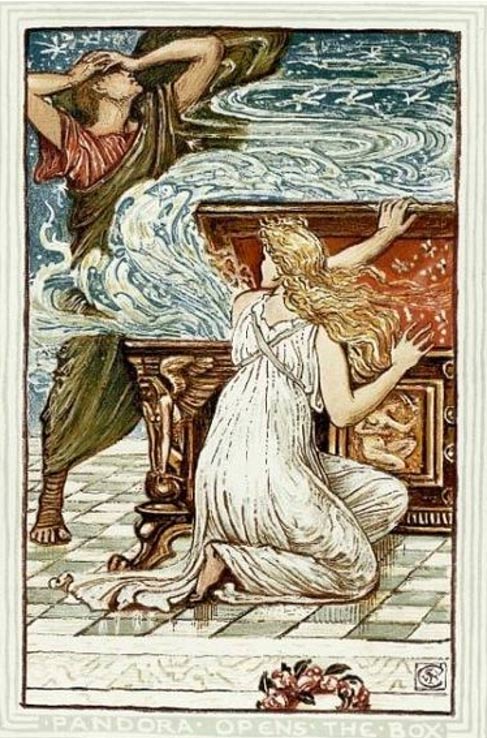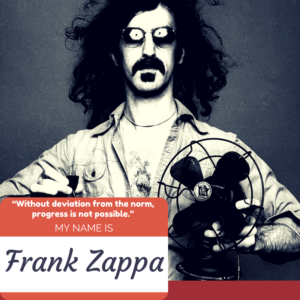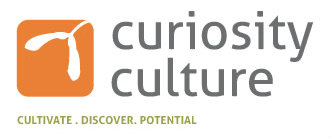Curiosity vs Conformity
“Curiosity… is insubordination in it’s purest form.” – Vladamir Nabakov
It’s becoming increasingly common for leadership coaches and innovation experts to espouse the benefits, and even necessity, of curiosity. And yet we also know, as I explained in a previous post, that education systems and workplaces typically discourage curiosity.
Why is this? What is it about curiosity that is so repellent?
 Curiosity, actually, has a very long history of being seen as dangerous; we all know the aphorism, “Curiosity killed the cat”. The Greek myth of Pandora is the classic tale of curiosity gone awry. Zeus commissions Haephaestus to design ‘Pandora’, the first woman, as a trap for Prometheus in revenge for his stealing fire. Zeus then gives Pandora a gift on her wedding day, a beautiful jar, but forbids her from opening it to see the contents. As we all know, Pandora’s curiosity gets the better of her, releasing all the evils known to humanity. Another even more familiar creation myth is also a tale of the danger of curiosity: the story of Paradise. Eve cannot resist the temptation to eat of the apple of the tree of knowledge, the result of which is humanity being expelled from Paradise by the angry God, to live and work ever after in toil and suffering.
Curiosity, actually, has a very long history of being seen as dangerous; we all know the aphorism, “Curiosity killed the cat”. The Greek myth of Pandora is the classic tale of curiosity gone awry. Zeus commissions Haephaestus to design ‘Pandora’, the first woman, as a trap for Prometheus in revenge for his stealing fire. Zeus then gives Pandora a gift on her wedding day, a beautiful jar, but forbids her from opening it to see the contents. As we all know, Pandora’s curiosity gets the better of her, releasing all the evils known to humanity. Another even more familiar creation myth is also a tale of the danger of curiosity: the story of Paradise. Eve cannot resist the temptation to eat of the apple of the tree of knowledge, the result of which is humanity being expelled from Paradise by the angry God, to live and work ever after in toil and suffering.
The stories of Pandora and Paradise have quite a few things in common. In both cases curiosity is represented by the feminine, in both cases curiosity is related to contravening a masculine authority, in both cases there is a punishment for stealing a transformational power that only the gods can have (fire and knowledge), and in both cases the punishment is permanent and catastrophic.
Evidently, according to the myths, there can be a very high price to pay for curiosity.
What is the authority that would punish curiosity?
Mario Livio states it plainly in his TedTalk ‘The Case for Curiosity’: “Who is it that doesn’t want you to be curious? Totalitarian regimes. People who have something to hide.”  A powerful indictment against those who reject questions! What is that totalitarian regimes do the world over: claim that the Free Press – the questioning corps – is the enemy of the people.
A powerful indictment against those who reject questions! What is that totalitarian regimes do the world over: claim that the Free Press – the questioning corps – is the enemy of the people.
Curiosity – the virtuous cycle of questions – is revelatory: it wants to know… its got to know. And so, where there is much to hide, it is most unwelcome, and so it is that this essay opened with Nabakov’s exclamation that “Curiosity… is insubordination in it’s purest form.” So curiosity, in the context of political oppression, can be a cognitive Molotov cocktail.
Curiosity is typically challenging to an insecure status quo. In classrooms and also boardrooms ‘the way things are done’ can prove to be immutably resistant to change. Curiosity may question ‘the way things are done’, and make those who benefit from the way things are done feel vulnerable. This feeling of vulnerability is rarely welcome. Furthermore we live in a  culture in which teachers and managers are expected to have answers. Any really good question is hard to answer… but rather than provoking a thoughtful reflection, or discussion, or avenue of exploration, in an insecure culture it will provoke a fiercely defensive rebuke.
culture in which teachers and managers are expected to have answers. Any really good question is hard to answer… but rather than provoking a thoughtful reflection, or discussion, or avenue of exploration, in an insecure culture it will provoke a fiercely defensive rebuke.
There are, however, much more subtle, and possibly more powerful, ways in which curiosity is suffocated. If – as we learned in a previous essay – anomalies, misfits and deviations heighten curiosity, we can also say that habit and conformity suppress it. And we are indeed creatures of conformity. The renowned and somewhat disturbing series of experiments done by Solomon Asch in 1951 demonstrated with great clarity the fact that a majority of people will literally deny the evidence of what they clearly see with their very own eyes if it risks social alienation, even amongst a group of strangers. Put in a room with a small group of actors who were instructed to all agree on a patently false statement about a chart they were shown test subjects would – despite evident discomfort – almost always agree with ‘the group’. Conformity can be a great silencer of questions than threats of imprisonment.
In Susan Engels’ book ‘The Hungry Mind: The Origins of Curiosity in Childhood’ she discusses a complex and subtle array of cues by which adults – parents and teachers – encourage or discourage curiosity in children. She describes how “different avenues of influence converge and blend to create an overall environment that may be more or less conducive to children’s curiosity”. “Although curiosity leads to knowledge”, Engel writes, “it can stir up trouble, and schools too often have an incentive to squelch it in favor of compliance and discipline.” (1)
Cultures of conformity – whether in homes, classrooms, tribes or workplaces – are just such ‘overall environments’. Culture is made up of webs of significance, nests of commitments, cycles of behaviour and paths of influence which mesh and blend together to create an overall environment. Cultures also have, like any organism, an immune system which a poignant curiosity may provoke, releasing the antibodies of defensiveness, shunning, demotion, degrading, expulsion, aggression, etc.
(1) Excerpt from Susan Engels, ‘The Hungry Mind’ @ Salon.com

